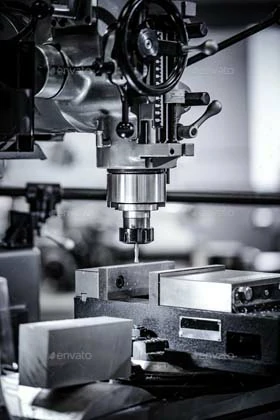In today’s highly competitive market, customization has become a key factor for businesses to stay ahead. With the advent of Computer Numerical Control (CNC) machining, companies can now offer customized products with greater precision and efficiency. This technology has revolutionized the manufacturing industry, providing numerous advantages but also presenting certain challenges. In this article, we will explore the advantages and challenges of using CNC machining for customized products.
Advantage 1: Precision and Accuracy
CNC machining offers exceptional precision and accuracy in producing customized products. The automated nature of CNC machines ensures that each component is manufactured to exact specifications, resulting in consistent quality. The use of computer-controlled systems eliminates the errors caused by human factors, ensuring minimal variations between products. This level of precision enables businesses to deliver products that meet stringent customer requirements, fostering customer satisfaction and loyalty.
Advantage 2: Increased Efficiency
Another significant advantage of CNC machining for customized products is its ability to improve production efficiency. Traditional manufacturing methods often involve complex and time-consuming processes that require skilled operators. CNC machines automate these processes, reducing manual labor and streamlining production timelines. The elimination of human error also minimizes material wastage, enhancing cost-effectiveness. With CNC machining, businesses can offer shorter lead times and faster turnaround for their customized products, gaining a competitive edge in the market.
Advantage 3: Versatility and Flexibility
CNC machining provides unparalleled versatility and flexibility in producing customized products. The machines can work with various materials, including metals, plastics, and composites, allowing businesses to cater to diverse customer needs. Furthermore, CNC machines can create intricate designs and complex geometries that are difficult to achieve using traditional methods. They can also be easily reprogrammed to produce different product variations, enabling businesses to adapt quickly to changing market demands. This versatility and flexibility make CNC machining an ideal choice for businesses seeking to offer a wide range of customized products.
While CNC machining offers numerous advantages, it also presents certain challenges that businesses must address:
Challenge: High Initial Investment
Implementing CNC machining technology requires a significant initial investment. The cost of purchasing CNC machines, training operators, and setting up the necessary infrastructure can be substantial for small and medium-sized businesses. However, it is essential to consider the long-term benefits and potential cost savings that CNC machining offers. Through increased productivity and reduced waste, businesses can recoup their investment over time.
Challenge: Programming Complexity
CNC machines require skilled programmers to create and optimize the machining programs. The programming process can be complex and time-consuming, requiring expertise in computer-aided design (CAD) and computer-aided manufacturing (CAM). To overcome this challenge, businesses can collaborate with experienced programmers or invest in training their workforce. Simplifying the programming interface and using user-friendly software can also help streamline the process and reduce programming complexities.
Challenge: Maintenance and Upkeep
Like any sophisticated machinery, CNC machines require regular maintenance and upkeep to ensure optimal performance. Routine inspections, system calibration, and periodic cleaning are necessary to prevent breakdowns and maintain accuracy. Additionally, software updates may be required to keep up with technological advancements and enhance machine capabilities. Allocating resources for maintenance and providing ongoing training to operators are vital for minimizing downtime and maximizing the lifespan of CNC machines.
In conclusion, CNC machining offers significant advantages for producing customized products, including precision, efficiency, and versatility. However, businesses must also consider the challenges associated with high initial investment, programming complexities, and ongoing maintenance. By addressing these challenges, companies can harness the full potential of CNC machining, delivering superior customized products and gaining a competitive edge in the market.
.webp)
